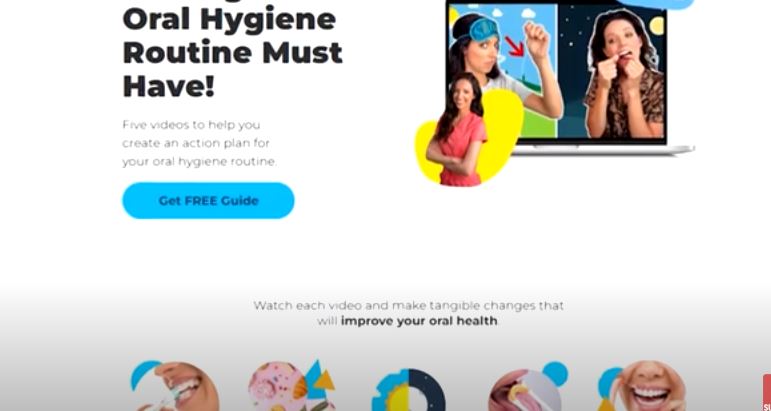Brushing your teeth is an essential part of any morning routine, but the timing of this task often raises a common question: should you brush before or after breakfast? While this decision may seem small, it actually impacts your oral health in significant ways, from plaque buildup to enamel protection. Let’s explore both options and help you decide which is best for your smile.
Why Brushing Before Breakfast Is Often the Smarter Choice
When you wake up, your mouth is a breeding ground for bacteria. While you sleep, saliva production decreases, allowing plaque—an accumulation of bacteria on your teeth—to form. Brushing your teeth first thing in the morning helps remove this plaque, giving you a fresh start for the day.
Stimulating Saliva Production
Brushing your teeth before breakfast does more than clean them; it also stimulates saliva production. Saliva plays an important role in neutralizing acids and washing away food particles, helping to keep your mouth clean and balanced. By brushing before eating, you provide a protective barrier that lasts throughout the day.
Protecting Your Enamel from Acid Exposure
Brushing before breakfast also helps protect your enamel, which is the hard, protective outer layer of your teeth. Many breakfast foods, such as citrus fruits and coffee, are acidic and can weaken enamel. By brushing before eating, you minimize exposure to these acids, reducing the risk of enamel erosion over time.
Preventing Plaque Build-up
Bacteria in your mouth multiply overnight, making your teeth more vulnerable to plaque buildup. Brushing before breakfast helps remove the bacteria before they interact with your food and create harmful acids, preventing plaque and potential dental issues like decay or gum disease.
The Case for Brushing After Breakfast: Benefits and Considerations
While brushing before breakfast has clear advantages, brushing after eating also has some benefits. One of the main reasons to brush after breakfast is to remove food particles that may be stuck between your teeth during your meal. Whether it’s a light snack or a more substantial breakfast, brushing afterward ensures that food debris doesn’t remain in your mouth, fueling bacterial growth.
However, brushing immediately after consuming acidic foods or drinks, like orange juice or coffee, can cause enamel damage. Right after eating, enamel is temporarily softened by the acids in your food. Brushing too soon can erode this weakened enamel.
Give Your Saliva Time to Work
Your saliva naturally neutralizes acids in your mouth after eating, so it’s important to wait about 30 minutes before brushing. This allows your saliva to restore the pH balance and re-harden your enamel, making it safer to brush without causing damage.
Freshening Your Breath
Brushing after breakfast can also help freshen your breath by removing any lingering food particles or odors from your meal. It’s an easy way to ensure that you feel confident and ready to start your day.
The Verdict: Which Is the Best Approach?

Both brushing before and after breakfast have their benefits, but brushing before breakfast is generally the safer choice for long-term oral health. It helps protect your enamel, prevents plaque buildup, and stimulates saliva production.
If you prefer brushing after breakfast, it’s important to wait at least 30 minutes to allow your saliva to neutralize acids. This waiting period helps you safely remove food particles and freshen your breath without damaging your enamel.
Key Takeaways
- Brushing before breakfast helps protect your enamel from acidic foods and reduces plaque buildup.
- If you brush after breakfast, wait for at least 30 minutes to give your saliva time to neutralize acids before brushing.
- Regular, proper brushing—whether before or after breakfast—is key to maintaining good oral health.
Table: Key Benefits of Brushing Before or After Breakfast
| Factor | Brushing Before Breakfast | Brushing After Breakfast |
|---|---|---|
| Plaque Removal | Removes overnight plaque and bacteria | Clears food particles from breakfast |
| Saliva Production | Stimulates saliva, which helps neutralize acids | Saliva works to neutralize acids, but requires time |
| Enamel Protection | Protects enamel from acids in breakfast foods | Risk of enamel erosion if brushing too soon |
| Breath Freshness | Can leave morning breath | Ensures fresh breath by removing food odors |
| Best For | Enamel protection, reducing bacteria | Freshening breath, removing food debris |
Expert Opinion: Dr. John Peterson, DDS
Dr. John Peterson, a dentist with over 20 years of experience, advises brushing before breakfast to protect enamel. “Brushing before eating is the best way to shield your teeth from the acids in food. This helps keep your enamel intact and provides a clean slate for the day,” he explains.
In the end, the decision on when to brush depends on what works best for you and your oral care routine. Whether you choose to brush before or after breakfast, consistency is key—make sure to follow a proper brushing technique for the healthiest smile.
For more information on maintaining optimal oral hygiene, visit the American Dental Association’s website.